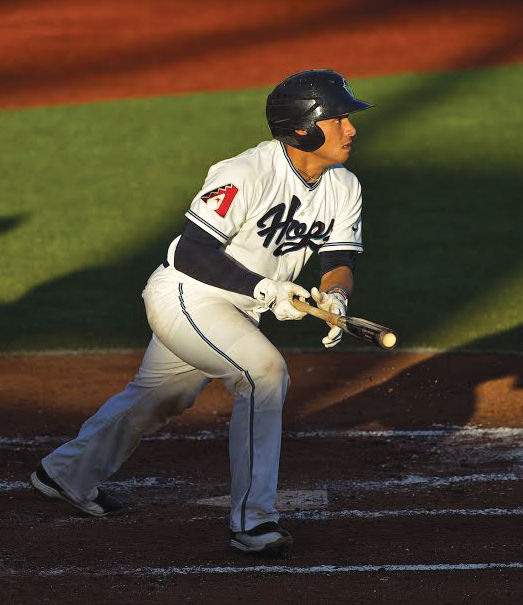Former catcher recaptures spark, work ethic in Single-A
September 12, 2014
After finishing an All-Big East campaign in 2013 with the Pitt baseball team, catcher Elvin Soto decided to move on to the big leagues and was drafted by the Arizona Diamondbacks in the 16th round. It’s oftentimes a difficult jump from college to the minor leagues, and Soto followed that trend in his rookie year.
In 45 games with the Hillsboro Hops, the Single-A short season affiliate of the Diamondbacks, Soto batted a mere .209 with a .589 OPS.
But, after hard work in the offseason, Soto found success again in 2014, hitting .256 with a .748 OPS in 51 games. He was named a Northwest League midseason all-star for his efforts. On top of that, Soto was an integral part in the Hops’ winning of the Northwest League Championship over the Vancouver Canadians. Here’s what Soto had to say about his time in the minor leagues thus far.
The Pitt News: What were the biggest improvements you made from 2013 to 2014?
Elvin Soto: Being more patient. Not thinking too much.
TPN: Did you make any adjustments in the offseason that led to a big jump in your number?
ES: I got after it a little earlier. I wanted to improve in the areas that I really didn’t have a good year in, which was hitting for the most part. I went out to the yard and just hit out there earlier and just started hitting outside a lot earlier than I usually would’ve done.
TPN: Was the adjustment to the improved pitching the hardest adjustment you had to make from college to the minor leagues?
ES: I feel like the first year, where I was coming right out to Pitt, I took a little time off … I took, I want to say, three weeks, so my timing was kind of off. It’s kind of hard to get your timing back when you’re seeing Friday night guys every night in the pro level. In college, I was hitting everyday and I was already locked in. So, I guess, the time off kind of threw me off.
TPN: What are you looking to improve on this offseason?
ES: Becoming smart towards the game. Getting ready for a longer season, getting my body ready physically and mentally, because it’s a grind. Minor league baseball people think it’s easy, but you kind of deal with a lot of adversity being away from home a long time. And just keeping my mental approach strong. Not letting things get to me and just going out there and having fun.
TPN: How do you best prepare your body to handle the uptick in games from Class A Short Season (76 games) to Class A (140 games)?
ES: You change your diet a little bit, you work out more. Work out your smaller muscles. People don’t understand that being big isn’t what you want to be as a baseball player. You want to be flexible. Make sure all of your small tendons and small muscles are being worked on. Doing a lot of shoulder care … little leg workouts for my knees, back workouts. It kind of all ties in with just mentally preparing yourself. Because, if you’re not mentally prepared for it, then it’s going to be a real struggle for you.
TPN: How was the experience of being named a Northwest League All-Star?
ES: It shows that you put in the work and someone’s recognizing it. It was kind of a tough year for me, my first season. This year, I decided to put in the work. It was an awesome experience to be able to come back and be an all-star in a league where there’s a bunch of guys that are pretty good. To be picked for an all-star team out of eight teams and maybe 20, 24, maybe 25 catchers. To be one of the two to get picked, it’s a pretty cool feeling.
TPN: How have you adjusted to the minor league lifestyle?
ES: It’s a quick adjustment, you kind of mature [earlier]. You kind of think back when you were in college and you say, ‘Damn, I had it real easy when I was in school.’ Now you kind of got to figure it all out on your own, and you just have to work with your instincts and go along with whatever’s going on.








